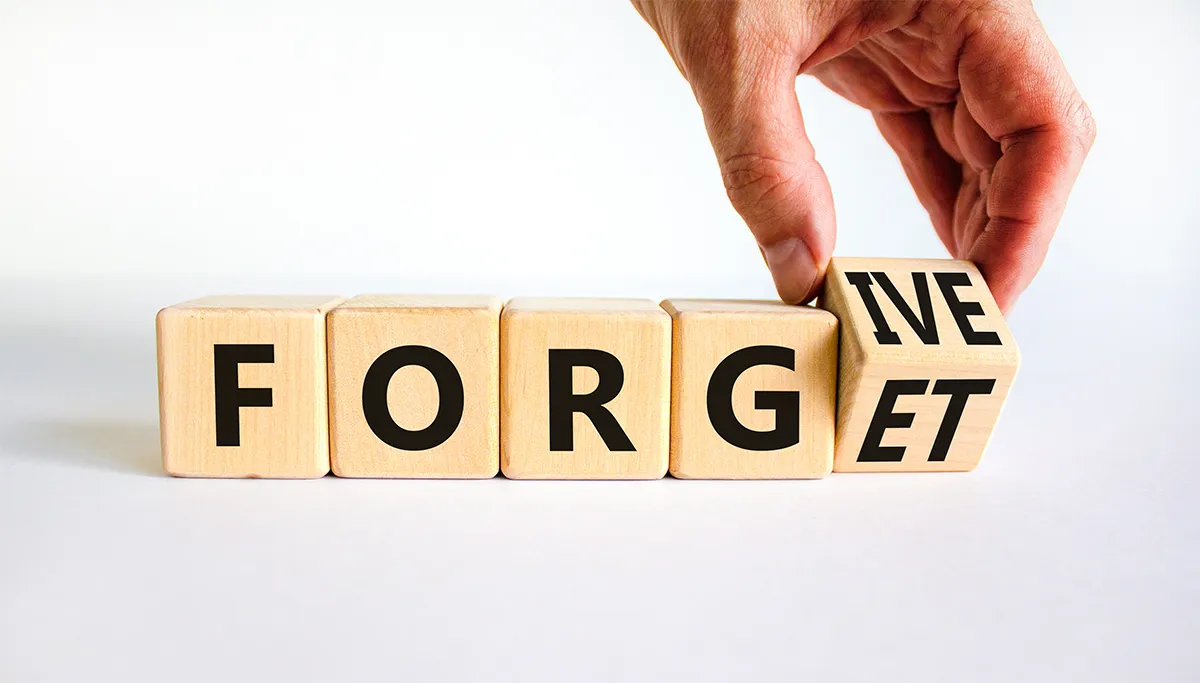How to move on from a break up
self-help and motivation
By: Duke Effiom

Share:
Going through a breakup is no walk in the park—it's more like a roller-coaster of emotions that can leave you feeling all sorts of ways. From the melancholy tunes of sadness to the fiery beats of anger and the downright confusing notes of, well, confusion—it's a lot. But here's the deal: healing is a journey, and it's totally doable. Even I myself have gone through a breakup, and I nearly cried, but guess what? I pulled through, and so can you. With a sprinkle of time and a whole lot of self-care, you've got the power to not just move on but to create a life that's genuinely fulfilling.
This guide? Think of it as your trusty companion in this post-breakup adventure. It's not just going to tell you how to survive; it's here to walk you through the practical steps and strategies to understand those emotions, set boundaries, rediscover yourself, and grow in ways you might not have imagined. Whether you're itching to rebuild that confidence, reconnect with who you are, or dip your toes into new relationships down the road, this guide is your friendly roadmap.
As we dive into the article, we'll navigate the terrain of self-reflection, emotions, boundaries, self-care, future goals, new relationships, and the art of forgiving and letting go. It's like a friendly chat, offering insights and down-to-earth advice to help you through the twists and turns.
So, grab your imaginary cup of tea, cozy up, and let's explore this transformative journey together. You've got a friend in this guide, and you've definitely got the strength to move forward with resilience and positivity. Let's do this! 🌟💖
Understanding Your Emotions

You know, navigating our emotions can be a like riding chaotic emotional whirlwind, and it turns out there's some science behind it all. Understanding and accepting our feelings might sound like textbook advice, but trust me, it's more than just a platitude.
Let's dive into the brain a bit. Picture your brain as a complex orchestra of emotions. Think of your amygdala as the conductor, guiding different sections that come alive with joy, sadness, or various feelings. Identifying and accepting these emotions is akin to adjusting your emotional radio — searching for the right frequency.
Now, the science part is cool. Studies show that being emotionally intelligent, like being aware when you're down and embracing it, is tied to better mental health. So, when you're feeling a certain way, don't sweep it under the rug; let your brain groove to that emotional beat.
And about grieving – it's a heavy topic, I get it. But it's not a sign of weakness; it's just part of being human. Science tells us that grief isn't just an affair of the heart; your brain is on this journey too. Going through the stages of grief is like taking a ride on an emotional roller-coaster, and you've got a front-row seat.
Allowing yourself to grieve is like giving your heart and brain the time they need to heal. It's not a linear process; you might find yourself circling through those stages more than once, and that's completely normal. Express your thoughts, jot them down, or just let it out – it's like giving your emotional baggage a VIP exit.
So, my friend, in this adventure called life, embrace those feelings. Let the tears flow when they need to, and dance to your own emotional rhythm.🌟
Establishing Boundaries

Navigating post-breakup territory can be a maze of emotions, but here's some friend-to-friend advice on establishing boundaries, backed by a bit of common sense and psychological insight.
Limiting Contact with Your Ex
Cutting down on communication with your ex might sound like a no-brainer, but it's a crucial step for your mental health. Scientifically speaking, when you're constantly in touch with someone you used to be close to, your brain keeps revisiting the emotional connections, making it harder to move on.
Studies indicate that taking a break from contact can actually help in breaking those emotional ties. It's like de-cluttering your mental space. Give yourself the gift of distance – it doesn't mean you're erasing the past; it's about creating room for the present and future you. In essence, blocking your ex on social media can be like taking a deep breath of fresh air, signaling the start of a new chapter.
Additionally, limiting contact doesn't mean you're being rude or insensitive. It's a self-care move, giving both parties the opportunity to grow independently. Your emotional well-being is a priority, and setting boundaries in this way is a sign of strength, not weakness.
Creating Emotional Space for Healing
Emotional healing is a process that requires space, just like a garden needs room to grow. Scientifically, when you allow yourself emotional distance from the source of pain, your brain can better process and cope with the emotions associated with a breakup.
Creating this emotional space involves more than just physical separation. It's about giving yourself permission to feel the range of emotions that come with a breakup, without being weighed down by constant reminders. Studies on resilience and coping mechanisms highlight the importance of creating this mental breathing room.
Engaging in activities you enjoy, spending time with supportive friends, and focusing on personal growth can contribute to this emotional spaciousness. Think of it as nurturing your emotional well-being, allowing it to bloom and flourish.
So, my friend, as you navigate this post-breakup chapter, consider these boundaries as acts of self-love and self-preservation. You're not shutting the door on the past; you're opening windows for fresh air and new possibilities. Take your time, and remember that healing is a journey, not a race. You've got this! 💪
Self Reflection

Taking a moment for some self-reflection can be like shining a light on the path to personal growth and understanding. Let's delve into the friend-to-friend guide on self-reflection, coupled with a touch of psychology.
Evaluating the Relationship
Okay, friend, grab an imaginary magnifying glass and let's take a closer look at the relationship. Scientifically speaking, self-reflection is like a mental inventory – it helps your brain process experiences and emotions. When you evaluate the relationship, you're essentially giving your brain the chance to organize and make sense of what happened.
Studies suggest that reflecting on past relationships can lead to greater self-awareness. It's not about assigning blame or dwelling on what went wrong; it's about understanding your needs, values, and what you've learned. The brain, being the amazing organ it is, processes this information, helping you make more informed choices in future relationships.
Now, this isn't about overthinking every detail. It's more like a friendly chat with yourself, asking questions like: What worked well? What didn't? What did I learn? This kind of introspection can be a powerful tool for personal growth.
Identifying Personal Growth Opportunities
Self-reflection isn't just about looking back; it's about looking forward too. Scientifically, when you identify personal growth opportunities, your brain is actively engaging in a process called neuroplasticity. This means your brain has the ability to reorganize itself, creating new neural connections and pathways.
Reflecting on the relationship can unveil areas where you can grow and evolve. Maybe there were patterns or behaviors that you want to work on, or perhaps you discovered strengths you didn't know you had. Psychology suggests that this kind of self-awareness is a key driver for personal development.
Consider setting some realistic goals based on what you've learned. It could be improving communication skills, setting healthier boundaries, or simply focusing on self-care. Your brain loves a challenge, and personal growth is like a workout for your mind.
So, my friend, as you embark on this journey of self-reflection, remember it's not about dwelling on the past but rather understanding and embracing your own growth. Your brain is a powerhouse of potential, and self-reflection is the key that unlocks those doors. Take your time, be kind to yourself, and watch how you blossom. 🌱✨
Surrounding Yourself with Support

When life throws curve-balls, having a support system can make all the difference. Let's chat about surrounding yourself with the kind of backup that's not just comforting but scientifically proven to boost your well-being.
Connecting with Friends and Family
Friend, never underestimate the power of a heart-to-heart with your ride-or-die pals or the comforting embrace of family. Scientifically speaking, social connections trigger the release of oxytocin, the feel-good hormone. When you connect with loved ones, your brain gets a dose of this happiness-inducing chemical.
Studies consistently show that strong social ties are linked to improved mental health. It's like your brain's way of saying, "Hey, you're not alone in this." Sharing your thoughts and feelings with friends and family not only provides emotional support but also activates brain regions associated with empathy and understanding.
So, pick up that phone, schedule a coffee date, or just swing by for a chat. Your brain (and heart) will thank you for it.
Seeking Counseling or Therapy if Necessary
Sometimes, friend, life throws challenges that need a bit more than just a friendly chat. Seeking counseling or therapy is not a sign of weakness; it's a proactive step toward emotional well-being. Scientifically, therapy can rewire your brain by fostering new perspectives and coping mechanisms.
Numerous studies highlight the effectiveness of counseling in managing stress, anxiety, and navigating life changes. Therapists are like expert navigators for your emotional terrain, guiding your brain toward healthier thought patterns and coping strategies.
The brain, being the adaptable marvel that it is, responds positively to therapeutic interventions. Neural pathways can be reshaped, and you might find yourself looking at challenges with newfound clarity.
Remember, my friend, building a support system is a dynamic process. It's not just about receiving help but also giving it. The beauty of social connections is that they're a two-way street, creating a positive feedback loop for everyone involved.
So, whether it's sharing laughter with friends or embarking on a journey of self-discovery with a therapist, surround yourself with the kind of support that elevates your well-being. Your brain and heart are in good hands. 🌟💖
Engaging in self care

Let's talk about the art of self-care—a mix of science and personal well-being that's like giving yourself a bouquet of positive vibes. Here's the lowdown, friend-to-friend style:
Prioritizing Physical and Mental Well-being
Alright, buckle up because we're diving into the world of self-care for both body and mind. Scientifically speaking, taking care of your physical health has direct effects on your mental well-being. Exercise, for instance, is like a magic potion for your brain, releasing endorphins that act as natural mood lifters.
Studies consistently show that regular physical activity is linked to reduced stress, anxiety, and depression. It's not about hitting the gym for hours; even a brisk walk or a dance session in your living room can work wonders.
On the mental health front, practices like mindfulness and meditation have been proven to reshape the brain's neural pathways, promoting emotional regulation and resilience. Consider it like a workout for your mind—strengthening those mental muscles.
So, make time for activities that get your body moving and your mind into a zen state. Your brain will thank you with a dose of those feel-good neurotransmitters.
Exploring New Hobbies and Activities
Now, let's add a dash of excitement to the self-care mix—exploring new hobbies and activities. Scientifically, trying out new things stimulates the brain's reward center, flooding it with dopamine, the pleasure neurotransmitter.
Engaging in activities you're passionate about or trying something completely novel can also lead to the formation of new neural connections. It's like expanding your brain's playlist, introducing it to fresh melodies and rhythms.
Studies suggest that participating in hobbies can reduce stress and improve overall life satisfaction. Whether it's picking up a musical instrument, trying your hand at painting, or diving into the world of literature, these activities provide a mental escape and foster a sense of accomplishment.
So, my friend, let your curiosity be your guide. Whether it's a hobby you've always wanted to pursue or a spontaneous adventure, give your brain the joy of exploration.
In essence, self-care is a dance between physical and mental well-being, and the moves are entirely personalized. So, prioritize yourself, move that body, engage your mind, and let the journey of self-care be as unique as you are. 🌈💪
Setting Future Goals

Let's chat about setting those future goals—a roadmap to the version of yourself you envision down the line. This is your personal compass, and we're diving into it with a mix of aspiration and positivity.
Establishing Personal Aspirations
Picture this as a friendly brainstorming session with yourself. Scientifically, when you set personal aspirations, your brain kicks into goal-setting mode. The prefrontal cortex, the mastermind of decision-making and planning, gets into action.
Studies show that having clear goals activates the brain's reward system, releasing dopamine and providing a sense of accomplishment. It's like your brain saying, "Hey, we've got a plan, and we're working towards it!"
Your personal aspirations can be big or small, short-term or long-term. They're the stars guiding you through the journey of life. Whether it's acing a new skill, traveling to a dream destination, or fostering meaningful relationships, these aspirations give your brain a roadmap to follow.
Focusing on a Positive Future
Now, let's infuse a dose of positivity into this goal-setting mix. When you focus on a positive future, you're essentially training your brain to look at challenges as opportunities for growth.
Psychologically, a positive outlook is associated with greater resilience and overall well-being. Studies suggest that individuals who envision a positive future tend to adopt healthier habits, cope better with stress, and maintain a more optimistic mindset.
It's not about ignoring the hurdles but rather framing them as stepping stones to success. Your brain loves a good narrative, and when you paint a positive picture of the future, it becomes a powerful motivator.
So, channel your inner optimist. Visualize your goals, imagine the steps to achieve them, and let that positive energy fuel your journey.
Remember, friend, setting future goals is a dynamic process. It's not about perfection; it's about progress. Your brain is a remarkable tool, and as you set your aspirations and focus on a positive future, you're essentially programming it for success.
So, dream big, aim high, and embrace the journey ahead. Your future self is waiting to high-five the incredible person you're becoming. 🌟🚀
Forgiven and Letting Go

Let's dive into the profound journey of forgiveness and letting go—an emotional detox that brings peace to your present and sets the stage for a brighter future. Here's a heart-to-heart guide:
Understanding the Power of Forgiveness
Forgiveness is like a superpower—it's not just about letting someone off the hook; it's about liberating yourself from the chains of resentment. Scientifically, forgiveness is associated with lower levels of stress, anxiety, and depression.
Studies show that the act of forgiveness stimulates the brain's reward centers, releasing feel-good neurotransmitters like oxytocin. It's a self-care move that nurtures your mental and emotional well-being.
Now, forgiveness doesn't mean forgetting or condoning actions. It's a conscious choice to free yourself from the burden of carrying old grievances. When you forgive, you're essentially saying, "I choose peace over pain."
Releasing Attachment to the Past
Time to loosen those ties to the past. Scientifically, releasing attachment to the past is like de-cluttering your mental space. Neurologically, your brain has a remarkable capacity for adaptation and growth. Holding onto past grievances keeps your brain stuck in a loop of negative emotions.
Studies on resilience and mindfulness suggest that letting go of attachment to the past can lead to changes in brain activity, promoting emotional regulation and well-being. It's like upgrading your mental operating system.
Releasing attachment doesn't mean erasing memories. It means re-framing them, allowing space for growth and healing. It's giving yourself permission to redefine the narrative and move forward with a lighter heart.
Forgiving and letting go is a gift you give to yourself. It's a process, not an overnight transformation. It takes strength and courage, and it's okay if it doesn't happen all at once.
So, my friend, consider forgiveness as an act of self-love. It's about reclaiming your peace and opening your heart to the beauty of the present and the possibilities of the future. You've got the power to untangle yourself from the past. Take a deep breath, embrace the journey, and let go. 🌿💖
Exploring New Relationships

Let's navigate the terrain of new relationships, a journey filled with excitement, self-discovery, and a dash of vulnerability. Here's a friendly guide on when and how to dip your toes back into the dating pool while keeping a close eye on your emotional compass:
When and How to Start Dating Again
Okay, friend, the "when" and "how" of dating post a significant life change is a bit like finding the perfect recipe—it's unique to you. Scientifically, there's no one-size-fits-all timeline because emotional healing is a personal journey.
When you feel a sense of stability and self-compassion, it might be a good indicator that you're ready to explore new connections. Research in psychology suggests that individuals who approach dating with a positive mindset and a clear sense of what they're looking for tend to have more satisfying experiences.
As for the "how," well, technology has made meeting new people easier than ever. Whether it's through dating apps, social events, or mutual friends, the key is to choose a method that aligns with your comfort level. It's like testing the waters and allowing yourself to ease back into the social scene at your own pace.
Being Mindful of Emotional Readiness
Now, let's talk about the heart-to-heart stuff—emotional readiness. It's like having a personal radar that tunes into your own emotions. Scientifically, emotional readiness involves recognizing and understanding your feelings before opening your heart to someone new.
Studies on emotional intelligence highlight the importance of self-awareness in forming healthy relationships. Before diving headfirst into the dating world, take a moment to check in with yourself. Are you seeking connection from a place of wholeness and self-love, rather than filling a void? Understanding your emotional motives can set the stage for more fulfilling connections.
It's also crucial to communicate openly with potential partners about your journey. Transparency fosters a foundation of trust and mutual understanding.
So, my friend, as you embark on this exploration of new relationships, remember that it's a chapter in your story, not the whole book. Trust your instincts, honor your emotions, and enjoy the journey of discovering new connections. You've got this! 🌟💖
Conclusion
Moving on from a breakup is a journey that requires patience, self-compassion, and intentional effort. As you navigate the various stages of healing, remember that it's okay to experience a range of emotions and that healing is not a linear process. Embrace the opportunity for self-reflection and personal growth, surround yourself with a supportive network, and prioritize self-care. By understanding your emotions, setting boundaries, and focusing on your well-being, you can gradually rebuild and create a brighter future for yourself. Each step you take toward healing is a step toward rediscovering your strength and resilience. As you conclude this chapter of your life, look forward to new beginnings, personal empowerment, and the potential for a more fulfilling future.